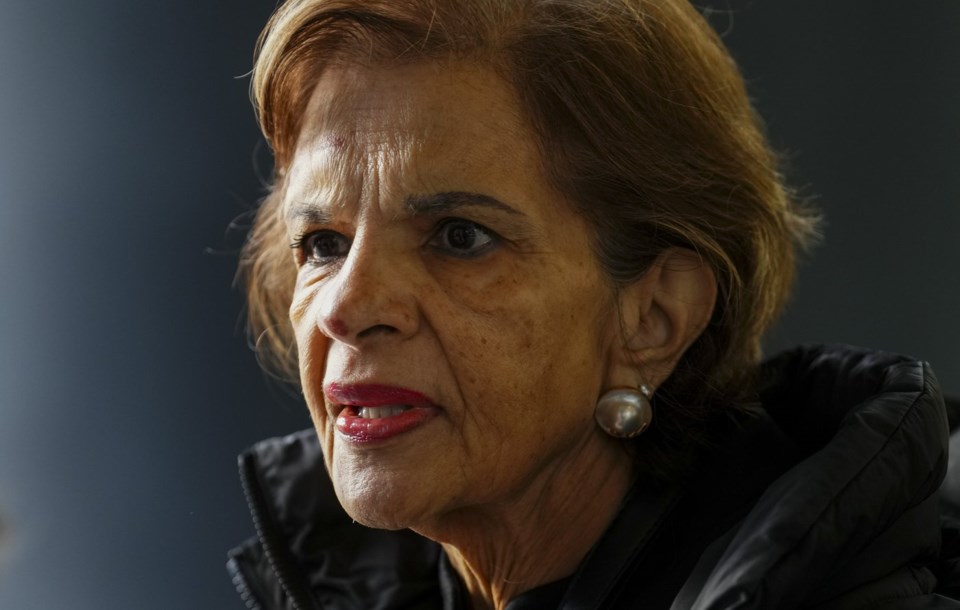OTTAWA — Former senator Mobina Jaffer says the director of Sudan's intelligence service told her Canadian officials thought Abousfian Abdelrazik was a terrorist, and wanted to find out if the Montreal man was indeed an extremist.
Jaffer, who retired from the Senate earlier this year, testified Monday in Federal Court in Abdelrazik's lawsuit against Ottawa over his detention and alleged torture in Sudanese custody two decades ago.
Abdelrazik arrived in Canada as a refugee from Sudan in 1990 and later became a Canadian citizen. He was arrested in September 2003 during a visit to his native country to see his ailing mother.
In October 2003, Abdelrazik was interrogated in custody by Canadian Security Intelligence Service officers about suspected extremist links.
He says he was tortured during two periods of detention by the Sudanese intelligence agency.
Abdelrazik, 62, denies involvement in terrorism.
Jaffer recalled her September 2004 meeting in Sudan with Salah Gosh, who was then the director of the country's intelligence service.
"He was frustrated," Jaffer said. "He felt that Canadian officials had asked him to detain Abdelrazik. He had detained him. Then there were no charges. And so he said to me, 'Why are you not taking him back?'"
Jaffer, Canada's special envoy for peace in Sudan at the time, said Gosh informed her Sudanese intelligence tried "all kinds of ways" to find out if Abdelrazik was involved in terrorism, but determined he was not, and that it was time for Canada to take him.
Jaffer said it was no secret the Sudanese intelligence service used brutal methods, so she immediately knew that Abdelrazik did not have a pleasant experience in custody.
Federal lawyers argue Abdelrazik is an author of his own misfortune, saying Canada did not urge Sudan to keep him in detention or mistreat him, or create a risk that these things might happen.
Jaffer consulted with Gosh several times during visits to Sudan to help ensure she could travel widely without incident while investigating the state of human rights in the country.
She told the court she was trying "to be very careful, because my role was as the envoy, not to deal with bilateral issues," such as Abdelrazik's case.
"Now when I look back, I'm very sorry that I didn't do more for this man, because he suffered a lot."
Jaffer met with Abdelrazik in Sudan in March 2005.
She recalled he told her he was treated "extremely badly" and that his jailers "whipped him with pipes and did all kinds of things."
Abdelrazik sat just metres away Monday as Jaffer remembered how gaunt and frightened he looked in Sudan.
"His eyes have ever since haunted me because they were extremely scared, and he was literally pleading with me to get him out of there, and I didn't do enough."
According to an agreed statement of facts in the court case, Abdelrazik was in frequent communication with the Canadian Embassy in Khartoum in the period after July 2004, and repeatedly asked for help to return to Canada.
In October 2004, Sudan proposed to fly Abdelrazik home on a Sudanese jet.
Canada told Sudan it did not object to such a flight, but would not pay for the trip, says the statement of facts. Ottawa said Sudan would need to provide flight routing, aircraft information and a passenger manifest before Canada issued an emergency travel document for Abdelrazik.
However, Sudan did not provide the information or pursue the idea further.
In March 2009, Abdelrazik obtained a ticket to Canada for the following month. However, he was denied an emergency passport.
Abdelrazik returned to Canada in June 2009 after a judge ruled Ottawa breached his constitutional rights by refusing to give him the travel document.
This report by The Canadian Press was first published Oct. 28, 2024.
Jim Bronskill, The Canadian Press

